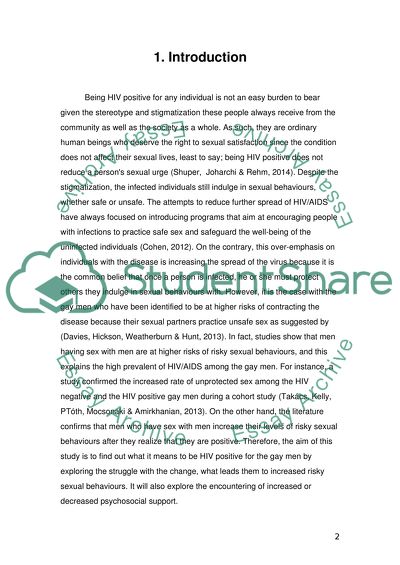Cite this document
(“How does being HIV positive influence the sex we have. A thematic Research Proposal”, n.d.)
How does being HIV positive influence the sex we have. A thematic Research Proposal. Retrieved from https://studentshare.org/psychology/1696477-how-does-being-hiv-positive-influence-the-sex-we-have-a-thematic-analysis-exploring-what-it-means-to-be-hiv-positive-for-gay-men
How does being HIV positive influence the sex we have. A thematic Research Proposal. Retrieved from https://studentshare.org/psychology/1696477-how-does-being-hiv-positive-influence-the-sex-we-have-a-thematic-analysis-exploring-what-it-means-to-be-hiv-positive-for-gay-men
(How Does Being HIV Positive Influence the Sex We Have. A Thematic Research Proposal)
How Does Being HIV Positive Influence the Sex We Have. A Thematic Research Proposal. https://studentshare.org/psychology/1696477-how-does-being-hiv-positive-influence-the-sex-we-have-a-thematic-analysis-exploring-what-it-means-to-be-hiv-positive-for-gay-men.
How Does Being HIV Positive Influence the Sex We Have. A Thematic Research Proposal. https://studentshare.org/psychology/1696477-how-does-being-hiv-positive-influence-the-sex-we-have-a-thematic-analysis-exploring-what-it-means-to-be-hiv-positive-for-gay-men.
“How Does Being HIV Positive Influence the Sex We Have. A Thematic Research Proposal”, n.d. https://studentshare.org/psychology/1696477-how-does-being-hiv-positive-influence-the-sex-we-have-a-thematic-analysis-exploring-what-it-means-to-be-hiv-positive-for-gay-men.


